Viewpoint: The rejected vegetables that aren’t even wonky
- Published
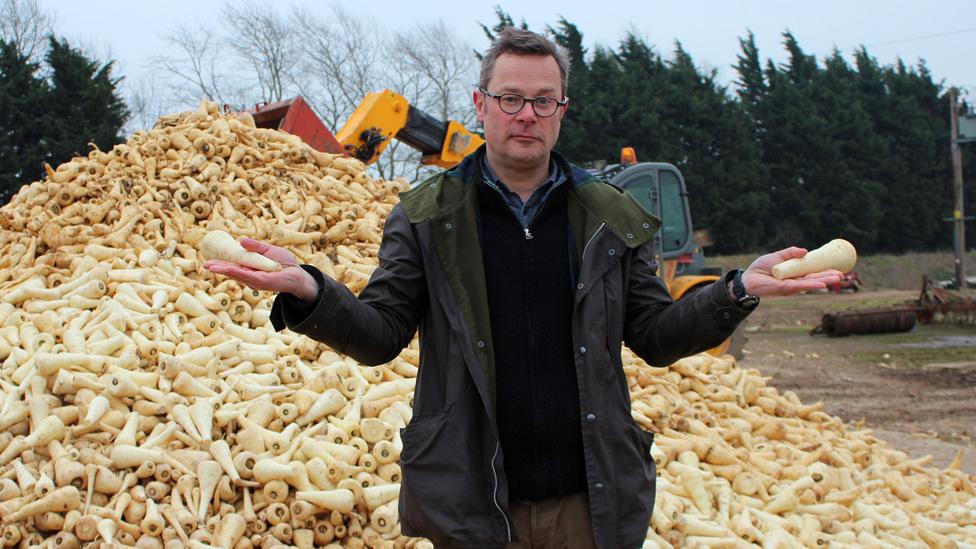
Tonnes of perfectly good food are thrown away in the UK every year. Why, asks Hugh Fearnley-Whittingstall.
I've witnessed some pretty grim scenes in the food business down the years - appalling conditions in the poultry industry, crazy EU fishing laws, all kinds of greed and folly.
Root vegetables may be a touch harder to feel for than chickens or fish. But watching 20 tonnes of freshly dug parsnips consigned to the rubbish heap in a Norfolk farmyard - purely because they didn't look pretty enough - is still one of the most shocking things I've ever seen.
That's not just a few sackfuls of parsnips, it's not a skip-load. It's a colossal mountain of them - enough to fill nearly 300 shopping trolleys. And, more importantly perhaps, to feed 100,000 people with a generous portion of roast parsnips.
That was just one week's wastage. So multiply by the 40 or so weeks of parsnip season (September-May) to get the full annual figure - four million parsnip portions that could, but won't, get eaten.
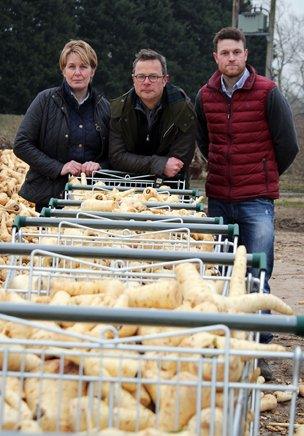
The Hammonds expect to make a loss
As a chef, I can tell you there was absolutely nothing wrong with them. In fact, they were beautiful. I would have been delighted to cook with them. They may not have been perfectly straight, or utterly without blemish, or conformed to a robot's laser vision of a perfect parsnip. But they were all just great to me.
Yet the supermarket client found them wanting. They "failed" the "cosmetic standards". They weren't wonky, or forked, or bruised or even "ugly". They just departed, sometimes by a matter of millimetres, from some bizarre set of specifications that defines, with apparent omniscience, what it is that we, the customers, demand our parsnips to be. Not that anyone's asked us.
Depending on the growing conditions, this wastage is between 30 and 40% of Tattersett Farm's crop of prime roots. No surprise then, that this is not just an appalling waste of food. It's an economic disaster for the producers. The Hammond family, who have been growing parsnips since the 1970s, have witnessed an "arms race" of cosmetic standards between the supermarkets in recent years, as they fall over themselves to have the prettiest produce on display.
Meanwhile they expect to make a loss this year. No wonder that, the Hammonds were talking - through barely suppressed tears - about jacking it all in.

Find out more
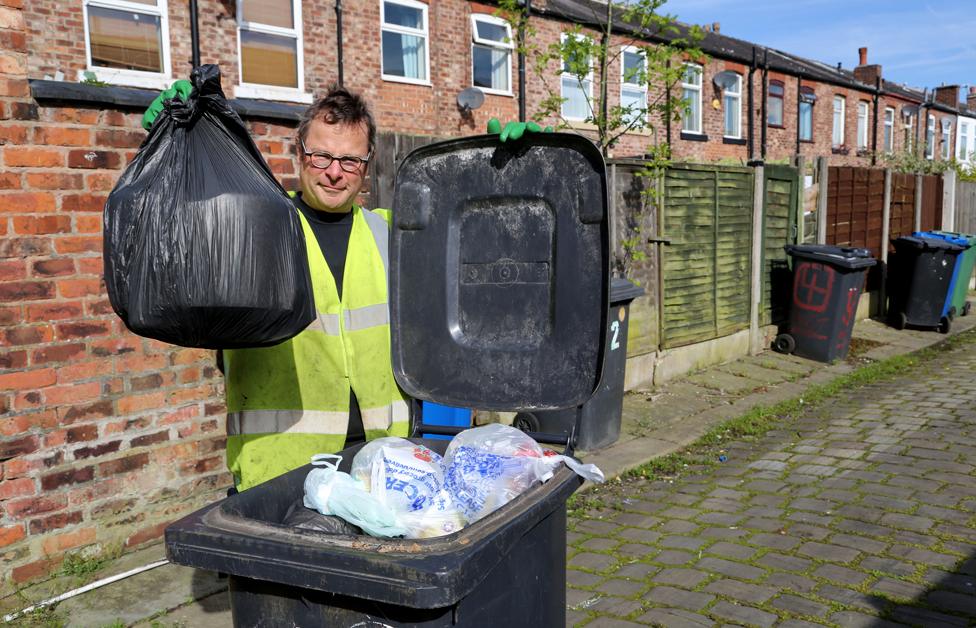
You can watch Hugh's War on Waste on BBC One, on Monday 2 November at 21:00, or catch up afterwards on iPlayer.

But this is not exceptional. This kind of near-criminal waste of good fresh produce is, unfortunately, very much the norm. Approximately one-third of the food we produce in the UK is never eaten. Take a minute to think about that - millions of tonnes of good food, and all the resources that go into producing it, squandered. Bonkers, isn't it?
Such profligacy is not just immoral, it's unnecessary. When I took some of the Hammonds' "reject" parsnips and offered them to High Street shoppers, they were only too happy to take them. People couldn't believe all this great food was being dumped. Supermarkets may claim that consumers will only accept ramrod-straight carrots and flawless apples. But I simply don't buy it.
And neither does waste campaigner Tristram Stuart, whose organisation Feedback has been challenging the supermarkets' cosmetic standards, and decrying the waste they cause. "We have proof that people are only too happy to buy this stuff," he says.
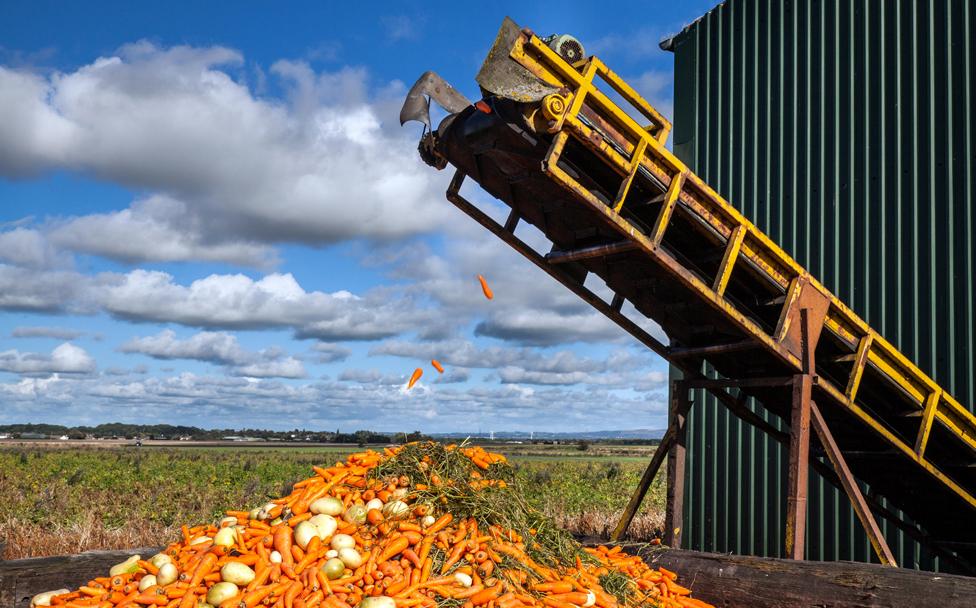
An enormous quantity of vegetables are rejected by supermarkets on cosmetic grounds
"Because, when it suits them, the supermarkets start selling it. In years of poor harvest, the cosmetic standards are relaxed, and the farmers are asked to bag up the ever-so-slightly bendy or blemished produce that would normally be rejected. Of course nobody even notices."
It feels like a bad joke at our expense. The horrendous waste caused by retailers has to stop. And people should ask their supermarkets to make that happen.
However, we can't ask the big guns to rein it in unless we're prepared to do our bit too. And we have to face the fact that almost 50% of food wastage in the UK is domestic - the stuff we buy but don't eat. And surely we have the same responsibility as big companies not to discard perfectly edible food.
I don't believe we're deliberately wasteful. Seeing vast quantities of food needlessly destroyed would make most of us extremely uncomfortable. The problem is that we don't see it. The average UK household wastes £700 worth of food every year. But of course, it's not all at once - it's a few slices of bread here, a bag of salad there, a couple of brown bananas every week.

How much do we waste?
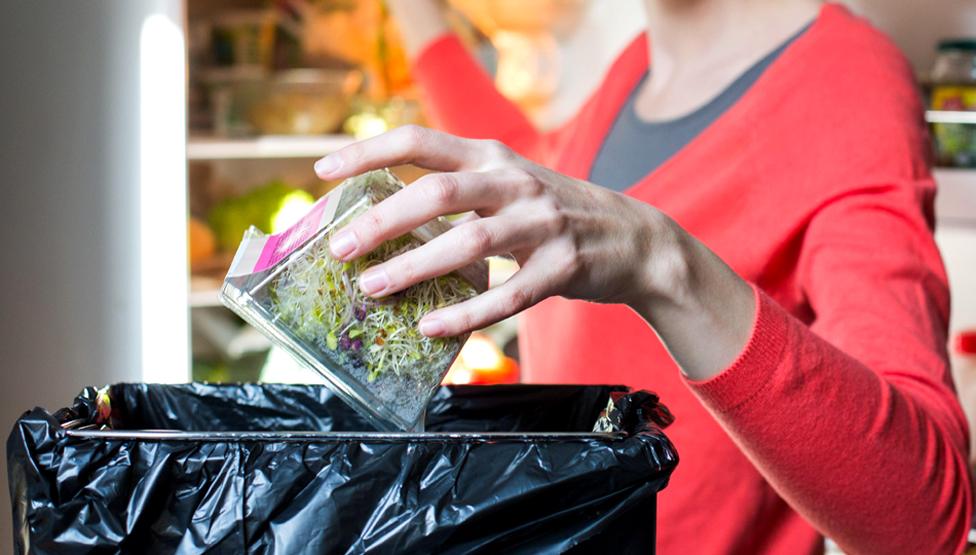
Almost 50% of wasted food in the UK comes from the home
Households throw out seven million tonnes of food and drink each year, including 680,000 tonnes of bakery, at a cost of £1.1bn
Domestic food waste costs the average household £470 a year, up to £700 for a family with children - a total of £12.5bn a year
Source: BBC and Love Food Hate Waste, external
More from the BBC: How to make a meal out of "waste" food

It's partly down to busy lifestyles. Our big weekly shop, piled high with bogofs and multi-packs, almost "factors in" the inevitability of waste. And we've become slaves to the "use-by" date, happy to let the supermarkets' robot package printers tell us when to throw food away.
Any sign of the natural progression of food - a blemish on our fruit, a dried-out corner of cheddar, a floppy leaf - is taken as confirmation that it's time to bin it. And of course the retailers won't mind at all if we throw something out and have to go and buy a replacement.
But do we really think a little brown spot on a grape is going to kill us? That a yoghurt that was perfectly good for our supper will have transmogrified at the stroke of midnight into a breakfast biohazard? When did we stop trusting our own instincts? Our eyes, noses, finger tips, and above all our common sense, are still the best tools to tell us whether something is good to eat or not.
It's time to deploy large amounts of that common sense to wrestle back some control over the food chain. To shop a bit smarter, and cook a bit savvier. To waste less food, by being thrifty with our leftovers, and using pots, pans and plates - not the bin - as the clearing system for our fridges.
Then we can turn to our supermarkets and say, with newfound confidence: "Look, we recognise that the food you sell us is a precious resource, and the product of many other precious resources. We expect you to do the same. So stop throwing so much of it away."
And then we may choose to give our custom not to the supermarket with the straightest parsnips on display, but the straightest policy on not wasting food.

The Magazine on supermarkets
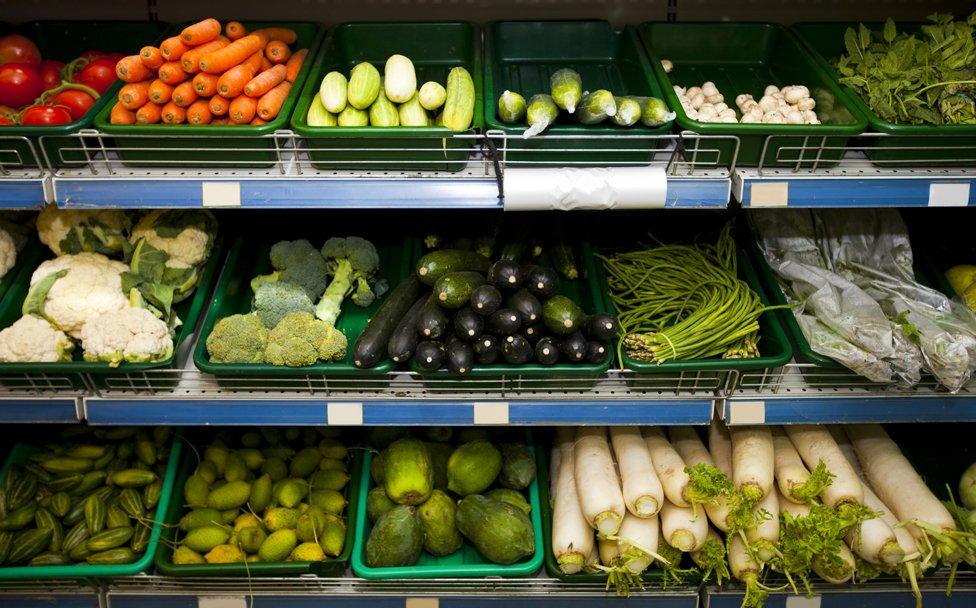

Subscribe to the BBC News Magazine's email newsletter, external to get articles sent to your inbox.